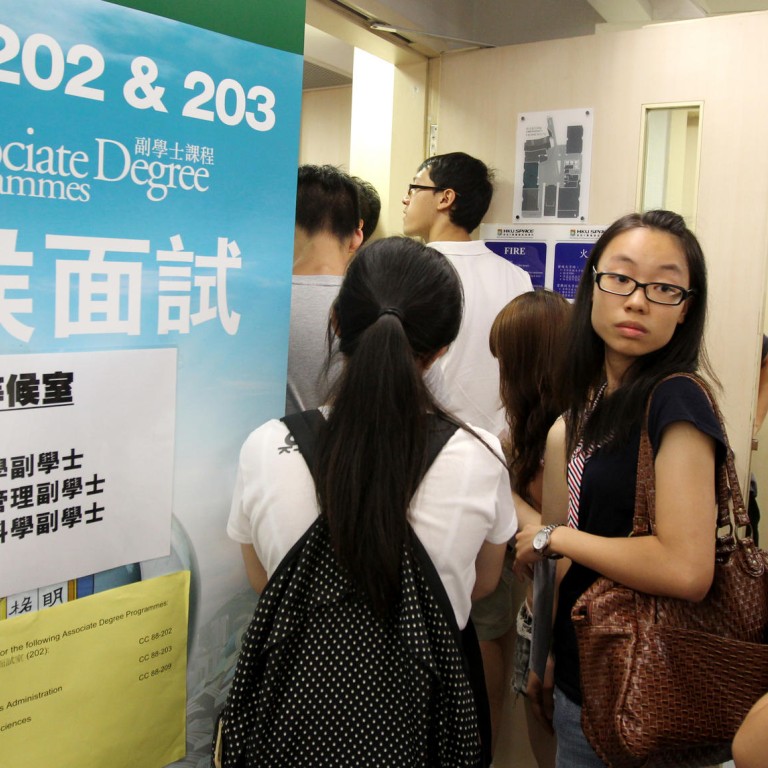
Learning Curve: Choosing school subjects
A few years ago, one of my students asked to switch from taking biology to chemistry for his International General Certificate of Secondary Education (IGCSE) examination. The school would normally have no problem with this, but his request came after students had completed one year of the programme and studying chemistry involved a mandatory coursework component that contributed 20 per cent towards the final grade. It would have been difficult to meet this requirement after missing one of year of the chemistry class.
He took biology to keep his options open for a career in Chinese medicine only to realise later that universities required students to have taken chemistry at the International Baccalaureate, or Hong Kong Diploma of Secondary Education levels even for allied medical subjects. That would be difficult to achieve without first having studied chemistry at the IGCSE level.
So when do students select their GCSE or IGCSE subjects? This academic year, students in Form Three (Year Nine) will choose the subjects they will study in Form Four and Form Five (Years 10 and 11), which is what they will take for their leaving exams.
To provide a balanced education, most schools offer English, maths, science and a second language as compulsory subjects. For their optional subjects students may choose from each of five groups - languages, humanities, sciences, mathematics and creative, technical and vocational - either at the core or the extended level.
Although it is not essential for your child to choose one subject from each area, the advantage of doing so is that it gives them more career options.
HKDSE students are required to take four core subjects: Chinese language, English language, mathematics and liberal studies. They are also required to take two or three electives from a list of 20 subjects from seven key learning areas: Chinese and English-language education, personal, social and humanities, science, technology, and arts and physical education.
Students should decide on their options by working backwards from university requirements for courses that interest them.
For example, all undergraduate courses at the University of Hong Kong require students to have a pass in at least six ICGCSE subjects taken in one sitting, which should include English language at grade C or above, mathematics, and one language other than English.
Those hoping to take medicine will also need grades of AAABB or above for biology, chemistry, English language, mathematics and physics at the GCSE level.
HKDSE candidates need to get at least three points (equivalent to grade E at A-level exams) in both languages and the electives, and two points for liberal studies and maths to apply to HKU. But the university makes clear that these minimum grades would be insufficient to gain admission into any stream, so it is important students select electives they can excel in.
To read subjects like law and economics at university, students need not have taken them at IGCSE or HKDSE level. But the opposite is true for sciences and mathematics. And some universities do not accept the science double award as a substitute for the individual sciences at IGCSE or HKDSE level.
It's important to have alternatives should they fail to secure admission to the university programme, so students' choice of subjects in senior secondary needs to accommodate this, too.
So while helping your child select exam subjects, consider what his or her innate abilities and interests are. Although it's too early for most students to have decided on a career path, check if any line of work arouses your child's interest. What are the subject requirements for this? What are your child's strengths? Is your child a prolific writer or bestowed with excellent analytical skills? Or is your child brilliant in music or an excellent athlete? It would be wise to include subjects that will capitalise your child's strengths, while maintaining a broad subject base that allows him to keep his options open.
What energises your child? To insist your child study Putonghua, economics or information communications technology (ICT) because they are popular now, when he does not have any interest or aptitude is probably setting him up for failure.
So did the wrong subject choice destroy my students' dreams? Fortunately, not. He was advised to take chemistry separately, without the coursework option, after completing his IGCSE. His chemistry teacher was extremely helpful in providing notes and past papers to allow him to later take chemistry for the IB diploma. But it involved a lot of unnecessary work for the student.
Anjali Hazari teaches IB and IGCSE biology at an international school in Hong Kong

